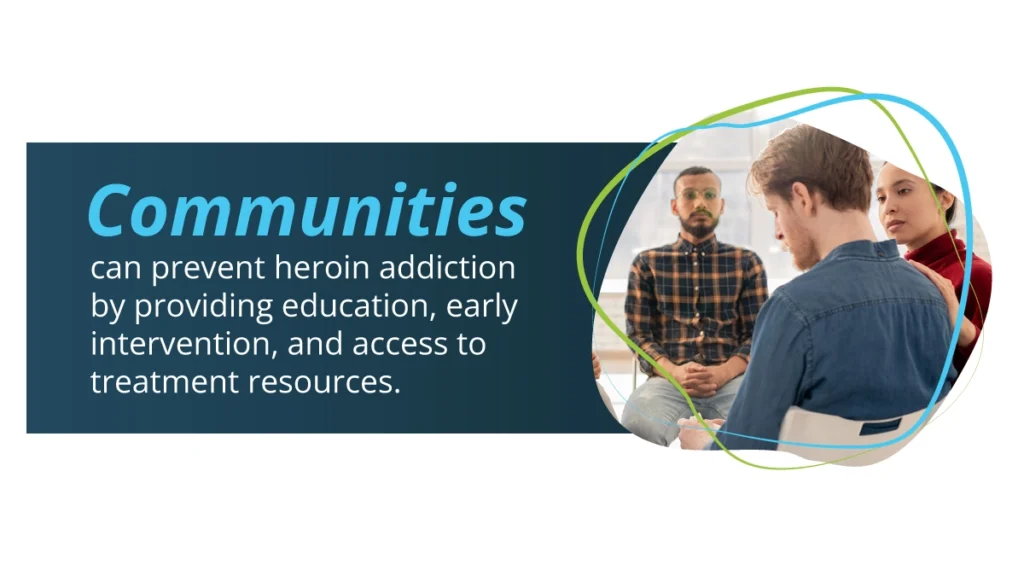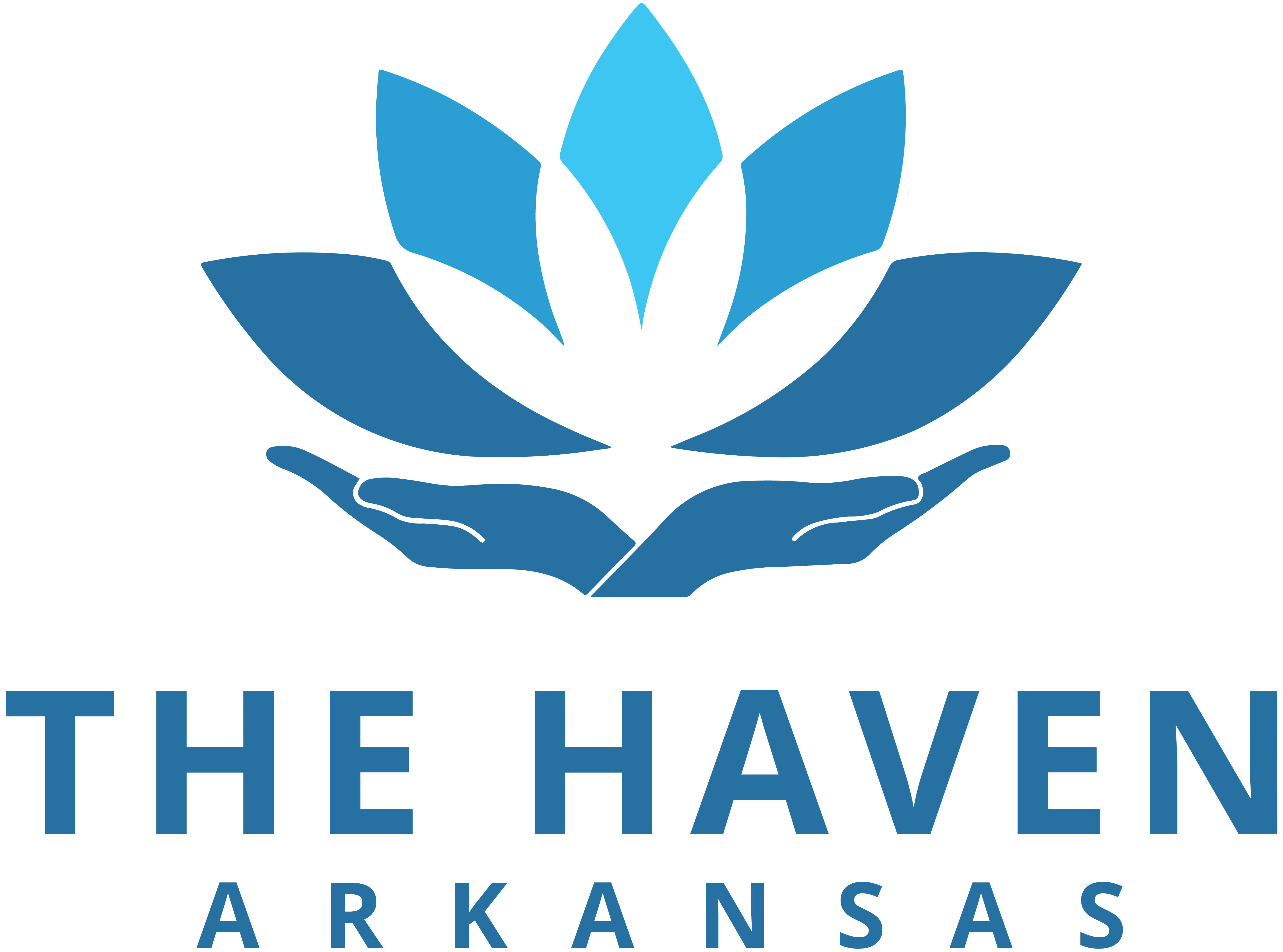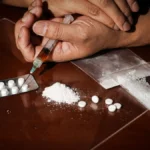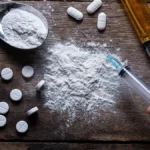Heroin addiction is a serious issue affecting many communities today. It’s essential to take steps to prevent this problem before it starts. Communities can play a vital role in stopping heroin addiction by creating support systems and spreading awareness. By working together, they can make a difference.
To prevent heroin addiction, communities should educate people about the dangers of drug use. They can also provide resources and support for those at risk. Read on to explore how communities can prevent heroin addiction.
Key Takeaways
Heroin addiction is a dependency on the illegal opioid drug heroin, leading to severe health and social problems. Here’s what this article covers:
- Communities can prevent heroin addiction by offering education, support, and resources to promote healthier choices.
- Communities can employ early intervention strategies like youth education programs and counseling to combat heroin addiction.
- They can enhance access to treatment and rehabilitation services to support individuals struggling with heroin addiction.
Contact The Haven Detox-Little Rock for a comprehensive heroin addiction treatment program. Call us at (501) 271-3342 for more details.

Understanding Heroin Addiction
Heroin addiction is a severe condition affecting many lives. It happens when someone repeatedly uses heroin, leading to dependence. Addiction causes physical and emotional problems, making it hard to stop without help. Understanding this addiction is vital to finding effective treatment.
What Is Heroin
Heroin is an illegal drug made from morphine, a natural substance. It comes in the form of a white or brown powder. People use it by injecting, snorting, or smoking it, which can quickly lead to addiction and severe health problems.
Causes And Risk Factors Of Addiction
Several factors can lead to heroin addiction, including genetic, environmental, and psychological influences. People may start using heroin due to peer pressure, stress, or curiosity. Mental health issues, like depression and anxiety, can also increase the risk of addiction.
The Impact On Individuals And Families
Heroin addiction affects both the individual and their loved ones. It can cause health problems, financial struggles, and legal issues for the user. Families may face emotional pain, stress, and broken relationships, making it difficult to support the addicted person.
Role Of Communities In Preventing Heroin Addiction
Communities play a central role in preventing heroin addiction through various strategies and programs. By engaging in prevention programs, they can provide young people with vital information about the dangers of substance abuse. These programs often include educational activities and resources that help individuals understand the risks of illegal drugs.
Law enforcement and public health organizations also contribute to addiction prevention. They work together to address the issue by implementing harm-reduction practices and enforcing laws against illegal drugs. Their efforts include monitoring and disrupting drug trafficking to reduce the availability of heroin in communities.
Additionally, communities can support prevention by creating a network of resources and activities that promote healthy lifestyles. By offering support groups and engaging in community outreach, they help reduce the risk of heroin overdose and provide assistance to those struggling with addiction. This united effort strengthens the overall approach to preventing heroin addiction.
Education And Awareness
Educating communities is decisive in preventing heroin addiction and substance use disorders. By increasing awareness and understanding, communities can effectively reduce drug addiction rates. Implementing evidence-based approaches helps to address risk factors and promote healthier choices among young adults.
Community Education Programs
Community education programs raise awareness about heroin addiction and drug use. These programs focus on harm reduction and overdose prevention by informing community members about treatment options. They also highlight the importance of patient education and involve friends and family members in prevention strategies.
School-Based Prevention Initiatives
School-based prevention initiatives aim to educate students about the dangers of heroin and other illicit drugs. These programs use evidence-based approaches to reduce substance use and promote healthy behavior. By targeting young adults in schools, these initiatives help prevent drug addiction and support better choices.
Parent And Family Education
Parent and family education programs help families understand the risks of drug addiction. These programs provide strategies for talking to youth about substance use and offer support for preventing drug abuse. They play a significant role in creating a supportive environment for students and family members.
Utilizing Media For Awareness Campaigns
Media campaigns use various platforms to spread awareness about heroin addiction and prevention strategies. They target a broad audience, including young adults, through social media, TV, and radio. These campaigns educate the public on the dangers of illicit drugs and available treatment options.
Early Intervention Strategies
Communities can prevent heroin addiction by using early intervention strategies. Focus on identifying signs of opioid use disorder and providing support services. Outreach programs and partnering with healthcare providers are essential for effective treatments and combating drug addiction.
Identifying Early Signs Of Addiction
Detecting early signs of heroin addiction helps in preventing heroin addiction. Look for changes in behavior or physical health, such as increased secrecy or neglect of responsibilities. Early identification allows timely intervention and access to support services and evidence-based treatments.
Outreach Programs For At-Risk Individuals
Outreach programs target at-risk individuals to prevent drug addiction. They provide education on the dangers of substances and connect people with support services. Programs often involve community engagement and aim to reduce higher risk through awareness and proactive measures.
Counseling And Support Services
Counseling and support services offer vital help for those facing heroin addiction. These services include therapy and support groups, helping individuals manage addiction and recover. Evidence-based treatments and ongoing support are essential for successful outcomes in combating drug addiction.
Partnering With Healthcare Providers
Partnering with healthcare providers enhances efforts to prevent and treat heroin addiction. Healthcare professionals can offer screening, early intervention, and access to treatments. Collaboration with healthcare providers ensures comprehensive support and aligns with the National Institute On Drug Abuse guidelines for effective drug addiction management.
Access To Treatment And Rehabilitation
Communities need better access to treatment and rehabilitation programs to fight heroin addiction. Improving access helps people get the help they need. Research shows that effective treatment reduces addiction rates and improves mental health.
Increasing Access To Treatment Centers
Expanding treatment centers makes help available for more people with drug problems. These centers provide specialized care for heroin addiction and other prescription drug issues. Studies show that more treatment centers can reduce addiction rates across the United States and improve public health.
Providing Affordable And Comprehensive Care
Affordable, comprehensive care is vital for treating heroin addiction. Offering cost-effective options ensures more people can access necessary treatment. Research highlights that affordable care options improve outcomes for individuals facing drug and mental health problems, promoting recovery and well-being.
Supporting Long-Term Recovery Programs
Long-term recovery programs offer continuous support for people overcoming addiction. They address both heroin and prescription drug problems and include mental health treatment. Studies show that ongoing recovery support reduces relapse rates and helps individuals maintain sobriety, improving their quality of life.
Involving Families In Treatment Plans
Family involvement strengthens treatment for heroin and prescription drug addiction. Including families in treatment plans provides emotional support and increases recovery success. Research shows that family support improves outcomes for those struggling with drug problems and enhances mental health in the United States.
Harm Reduction Strategies
Harm reduction strategies are essential for communities to protect individuals from heroin addiction. These approaches focus on minimizing the adverse effects of drug use rather than solely preventing drug use. One common strategy is providing clean needles to reduce the risk of infections.
Another important harm reduction method is offering access to overdose prevention programs. These programs often distribute naloxone, a medication that can reverse opioid overdoses. Community members are trained to use naloxone, helping save lives in emergencies.
Education and support services are also decisive in harm reduction strategies. Support services like counseling and addiction treatment programs offer help to those struggling with addiction. By making these resources available, communities create a safer environment and promote healthier lifestyles.
Frequently Asked Questions (FAQ)
How can we reduce opioid abuse?
To reduce opioid abuse, it’s important to educate people on the risks and dangers of these drugs. Providing alternative pain management methods can help prevent dependency. Strengthening prescription guidelines ensures that opioids are only used when necessary. Offering support and treatment options for those struggling with addiction is essential.
Communities can play a vital role by promoting awareness and removing the stigma around seeking help. Early intervention and monitoring are critical for preventing misuse and helping at-risk people. By working together, we can reduce opioid abuse and its harmful effects.
What strategies are used for drug abuse prevention?
Drug abuse prevention strategies focus on education, support, and community involvement. Schools often teach students about the dangers of drugs, helping them make informed choices. Families and friends can provide vital support networks, encouraging healthy behaviors and open communication.
Community programs also play a crucial role in offering resources and activities that positively engage people. These strategies work together to reduce the risk of drug abuse, helping individuals build resilience and make safer choices. By raising awareness and providing support, we can prevent drug abuse and promote healthier lifestyles.
The Haven Detox-Little Rock: Empower Your Recovery
If you or a loved one is struggling with heroin addiction, The Haven Detox-Little Rock is here to help.
Our comprehensive detox program offers a safe and supportive environment to eliminate harmful toxins from the body, manage withdrawal symptoms, and start the recovery journey. Our residential rehab provides a structured setting for intensive therapy and personal growth, ensuring long-term success in overcoming addiction.
Additionally, our medication-assisted treatment combines FDA-approved medications with counseling to address addiction effectively and support recovery.Contact us today at (501) 271-3342 to learn more about our services and take the first step towards a healthier, drug-free life.




